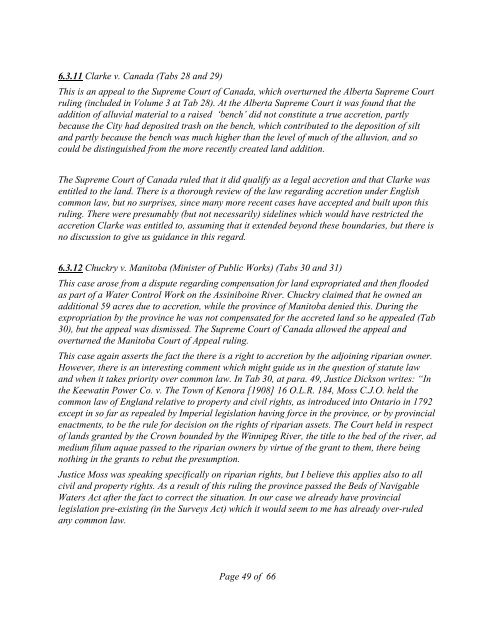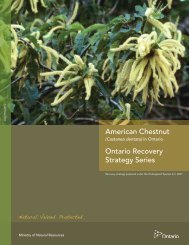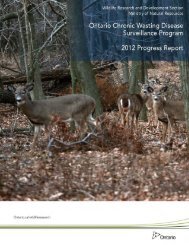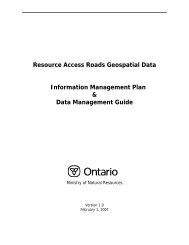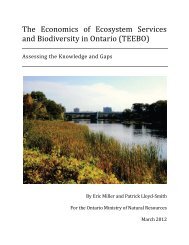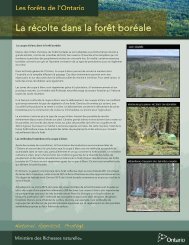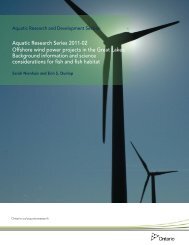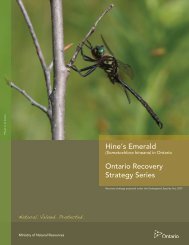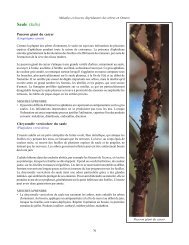Report of Research, Field Investigation and Survey of Robert D ...
Report of Research, Field Investigation and Survey of Robert D ...
Report of Research, Field Investigation and Survey of Robert D ...
Create successful ePaper yourself
Turn your PDF publications into a flip-book with our unique Google optimized e-Paper software.
6.3.11 Clarke v. Canada (Tabs 28 <strong>and</strong> 29)<br />
This is an appeal to the Supreme Court <strong>of</strong> Canada, which overturned the Alberta Supreme Court<br />
ruling (included in Volume 3 at Tab 28). At the Alberta Supreme Court it was found that the<br />
addition <strong>of</strong> alluvial material to a raised ‘bench’ did not constitute a true accretion, partly<br />
because the City had deposited trash on the bench, which contributed to the deposition <strong>of</strong> silt<br />
<strong>and</strong> partly because the bench was much higher than the level <strong>of</strong> much <strong>of</strong> the alluvion, <strong>and</strong> so<br />
could be distinguished from the more recently created l<strong>and</strong> addition.<br />
The Supreme Court <strong>of</strong> Canada ruled that it did qualify as a legal accretion <strong>and</strong> that Clarke was<br />
entitled to the l<strong>and</strong>. There is a thorough review <strong>of</strong> the law regarding accretion under English<br />
common law, but no surprises, since many more recent cases have accepted <strong>and</strong> built upon this<br />
ruling. There were presumably (but not necessarily) sidelines which would have restricted the<br />
accretion Clarke was entitled to, assuming that it extended beyond these boundaries, but there is<br />
no discussion to give us guidance in this regard.<br />
6.3.12 Chuckry v. Manitoba (Minister <strong>of</strong> Public Works) (Tabs 30 <strong>and</strong> 31)<br />
This case arose from a dispute regarding compensation for l<strong>and</strong> expropriated <strong>and</strong> then flooded<br />
as part <strong>of</strong> a Water Control Work on the Assiniboine River. Chuckry claimed that he owned an<br />
additional 59 acres due to accretion, while the province <strong>of</strong> Manitoba denied this. During the<br />
expropriation by the province he was not compensated for the accreted l<strong>and</strong> so he appealed (Tab<br />
30), but the appeal was dismissed. The Supreme Court <strong>of</strong> Canada allowed the appeal <strong>and</strong><br />
overturned the Manitoba Court <strong>of</strong> Appeal ruling.<br />
This case again asserts the fact the there is a right to accretion by the adjoining riparian owner.<br />
However, there is an interesting comment which might guide us in the question <strong>of</strong> statute law<br />
<strong>and</strong> when it takes priority over common law. In Tab 30, at para. 49, Justice Dickson writes: “In<br />
the Keewatin Power Co. v. The Town <strong>of</strong> Kenora [1908] 16 O.L.R. 184, Moss C.J.O. held the<br />
common law <strong>of</strong> Engl<strong>and</strong> relative to property <strong>and</strong> civil rights, as introduced into Ontario in 1792<br />
except in so far as repealed by Imperial legislation having force in the province, or by provincial<br />
enactments, to be the rule for decision on the rights <strong>of</strong> riparian assets. The Court held in respect<br />
<strong>of</strong> l<strong>and</strong>s granted by the Crown bounded by the Winnipeg River, the title to the bed <strong>of</strong> the river, ad<br />
medium filum aquae passed to the riparian owners by virtue <strong>of</strong> the grant to them, there being<br />
nothing in the grants to rebut the presumption.<br />
Justice Moss was speaking specifically on riparian rights, but I believe this applies also to all<br />
civil <strong>and</strong> property rights. As a result <strong>of</strong> this ruling the province passed the Beds <strong>of</strong> Navigable<br />
Waters Act after the fact to correct the situation. In our case we already have provincial<br />
legislation pre-existing (in the <strong>Survey</strong>s Act) which it would seem to me has already over-ruled<br />
any common law.<br />
Page 49 <strong>of</strong> 66


